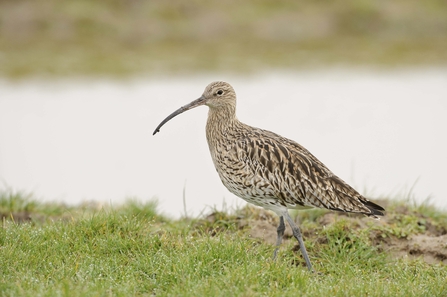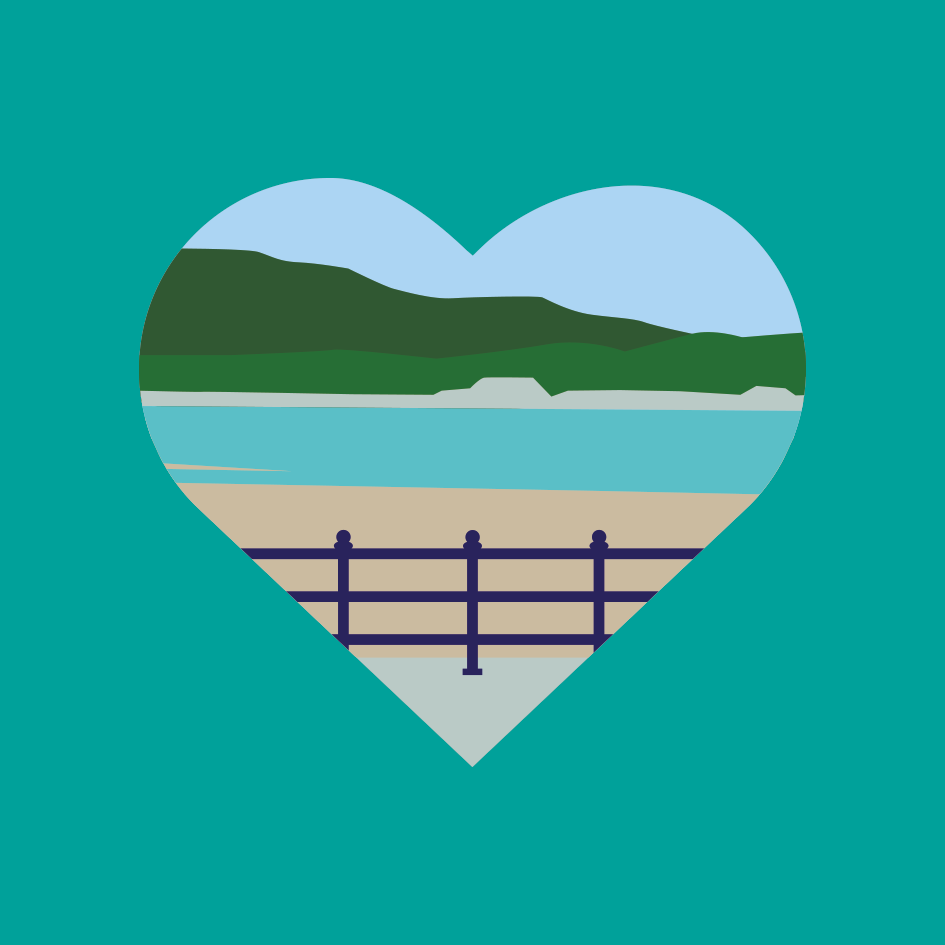The beach is a site enjoyed by many, from your typical dog-lovers to your cyclists, runners and families just looking to enjoy the outdoors. It’s even a hotspot for watersports! And you can’t go wrong with appreciating nature. Spending time by the sea is a great way to improve your mental health, and it's increasingly vital that we all have the opportunity to reconnect with the natural world.
Do not disturb
Lauren Heather
Photo by Izzy Sharpe.
As important as the Bay is for local communities, it's just as important for its wildlife, who use it as a place to breed, gather food, and call home. However, in recent decades, the delicate balance between our needs and the needs of the animals has unfortunately begun to tip, leaving the future of many species dangerously uncertain. I feel that it's important to bring some of their struggles to light.
So what could possibly be the problem with our coastal dog walks? It is a phenomenon known as recreational disturbance - and for Morecambe Bay’s birdlife, the effects have been devastating. Recreational disturbance is the repeated disturbance of birds who are trying to breed or roost along the coast, be it by unruly dogs, loud noises, or people getting just a bit too close. If a dog chases a bird away once, no harm done! Most birds aren’t going to let one pesky pet ruin their day. But let’s say that they get chased by another dog there the next day, and the next, and the next… well, suddenly, that section of coast isn’t going to feel very safe anymore.
When the disturbance continues for long enough, it can lead birds to look for other places to nest, forcing them to move to new areas where they might have less access to food or shelter. In the winter time, the act of flying away is a drain on a bird’s energy, which can be especially dangerous when they’re already struggling to compete with other birds for their survival.
As much as recreational disturbance is an issue on a national scale, it’s also very much a local one. Morecambe Bay has been listed as an SPA, or Special Protection Area, and it’s one of the most important sites for the UK’s birds all year round. Just in winter, the Bay regularly hosts over 200,000 birds!

Curlew ©Terry Whittaker/2020VISION
Unfortunately, though, that number is falling. Between 1996 and 2022, the number of curlews wintering at Morecambe Bay has decreased by 32%, and that goes up to a 50% decrease in the summer months, a worrying decline that can be seen across the many species of bird that live there. The toughest months are getting tougher, and for many of Morecambe’s birds, this winter might very well be their last.
But thankfully for us, there are still ways we can help! And we don’t even need to sacrifice our coastal dog walks. The best way to protect our birds is simply by keeping our distance from them, sticking to the paths and keeping our pets on the lead. It’s a good idea to make sure that dogs are kept under proper control so that they don’t go running off after the nearest seagull. And the next time you meet up with a fellow dog walker, it couldn’t hurt to pass on the message.
At the end of the day, our time by the coast is a privilege and a right, and we should always strive to make the most of it. Let’s just make sure that the wildlife can enjoy it too.
Do not disturb (https://youtu.be/chendypg8zo)
Video by Manta

